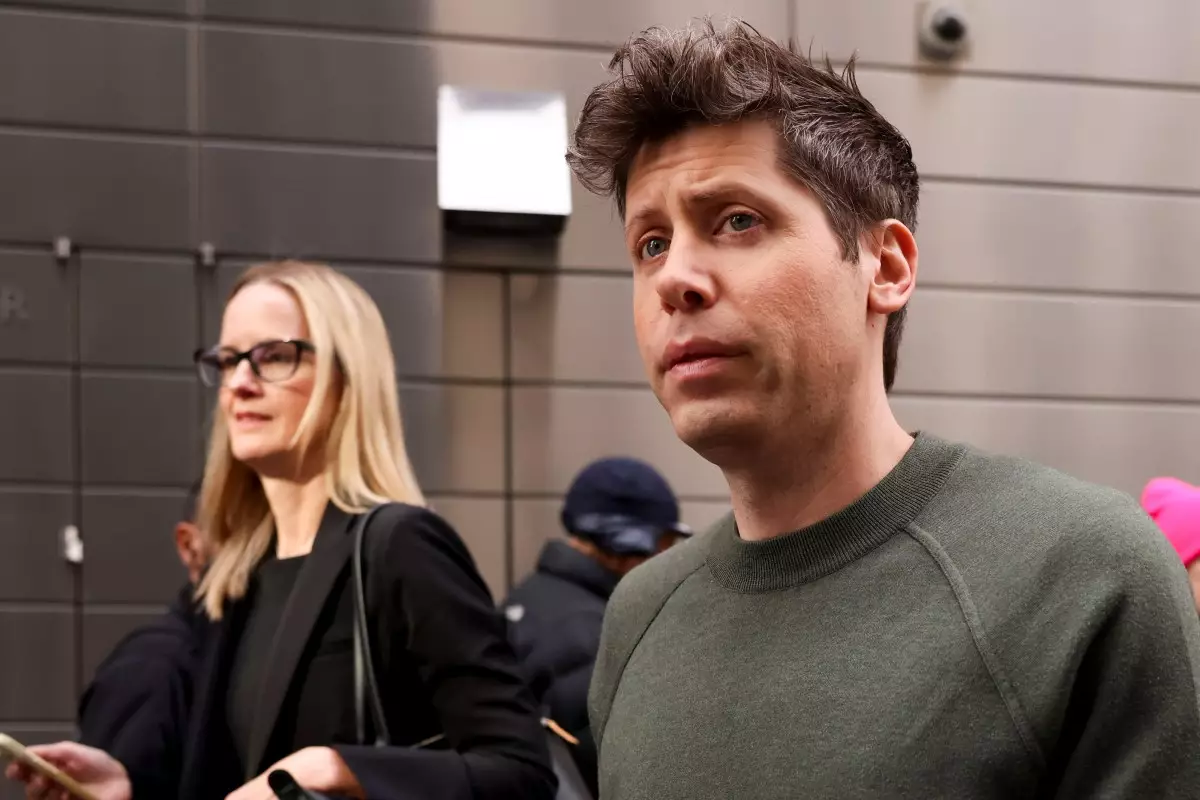The ongoing debate about the future of OpenAI, a company initially established as a nonprofit dedicated to artificial intelligence safety, has intensified and sparked a flurry of legal and ethical considerations. After months of speculation, Elon Musk, an early supporter of OpenAI, has formally requested an injunction to halt the organization’s transition from a nonprofit to a for-profit entity. This request has gained significant attention, particularly as Encode, a nonprofit organization concerned with AI safety, seeks to enter the fray by filing an amicus brief in support of Musk’s legal action.
OpenAI’s shift towards a for-profit structure marks a pivotal change in its operational philosophy. Originally founded in 2015 as a nonprofit research lab, OpenAI positioned itself as a champion of ethical AI development and accessibility. However, the financial demands of advancing artificial intelligence technology have led OpenAI to embrace venture capital funding and create a hybrid model that allows for capped profits for investors. This evolution raises critical questions about the integrity of its mission and the ability of a profit-driven entity to prioritize societal benefit genuinely.
The worries articulated by Encode resonate with many who fear that a transition to a Delaware Public Benefit Corporation (PBC) may dilute OpenAI’s commitment to AI safety. In legal terms, a PBC is bound to balance the interests of shareholders with public benefits, but as critics point out, the potential for conflicts between profit motives and the ethical oversight of AI could undermine OpenAI’s foundational goals. Encode’s proposed brief asserts that allowing OpenAI to operate with the primary focus on shareholder profits could lead to the erosion of vital safety measures that the nonprofit once championed.
Musk’s action comes against the backdrop of broader tensions within the AI landscape, with competing firms, including Meta, also expressing alarm over OpenAI’s impending change. Meta has publicly supported initiatives to challenge OpenAI’s shift, indicating that the ramifications extend far beyond corporate governance—signaling that the tech industry is intensely concerned about the ethical implications of who controls powerful AI technology.
Attorneys for Encode affirm that while OpenAI’s nonprofit governing body has historically been legally obligated to prioritize public safety, the proposed PBC structure may allow the company to sidestep those responsibilities. This is a significant shift in the landscape of AI development, where the stakes are high, and any negligence toward ethical standards could rapidly lead to societal repercussions. The critique of the existing balance points to a troubling possibility—that profit-driven imperatives could override the necessity of conscientious governance in technology development.
The concerns surrounding OpenAI are exacerbated by reports of talent exodus from the company, with former employees expressing disquiet about the potential for reduced focus on safety in favor of commercial objectives. Miles Brundage, a longstanding policy researcher at OpenAI who left recently, articulated fears that the nonprofit status would be reduced to a mere façade, granting the PBC the latitude to pursue business as usual without the stringent oversight necessary for ethical AI innovation.
This sentiment captures a larger crisis of confidence within the company and the industry at large. If OpenAI transitions into a profit-oriented organization, the perceived commitment to ensuring robust safety measures against the backdrop of advanced technology may fade. The argument presented evokes the question of responsibility: Will profit motives compromise the extensive public interest that an organization with such transformative potential should inherently safeguard?
At the heart of this discourse lies the emerging organization Encode, founded by a high school student, Sneha Revanur. The group underscores the imperative for increased youth participation and scrutiny regarding AI developments and their far-reaching consequences. As AI technologies evolve, it becomes critical for younger generations to engage proactively, ensuring their voices are heard in discussions that will shape the future of AI regulation and safety.
Encode’s involvement highlights a vital intersection between innovation, ethical responsibility, and community empowerment. As stakeholders like Encode step onto the stage, their contributions challenge established entities such as OpenAI to remain accountable and committed to a vision that prioritizes humanity’s welfare over corporate gain. This dynamic elucidates a crucial insight: the future of AI will not only be determined by technological advancements but also by societal insistence on ethical governance.
The unfolding saga surrounding OpenAI exemplifies the broader challenges inherent in merging technological innovation with ethical oversight. The interplay among profit motives, competition, and public safety creates a complex landscape that requires vigilant engagement from all sectors of society, especially the young voices that will inherit the consequences of today’s decisions.

